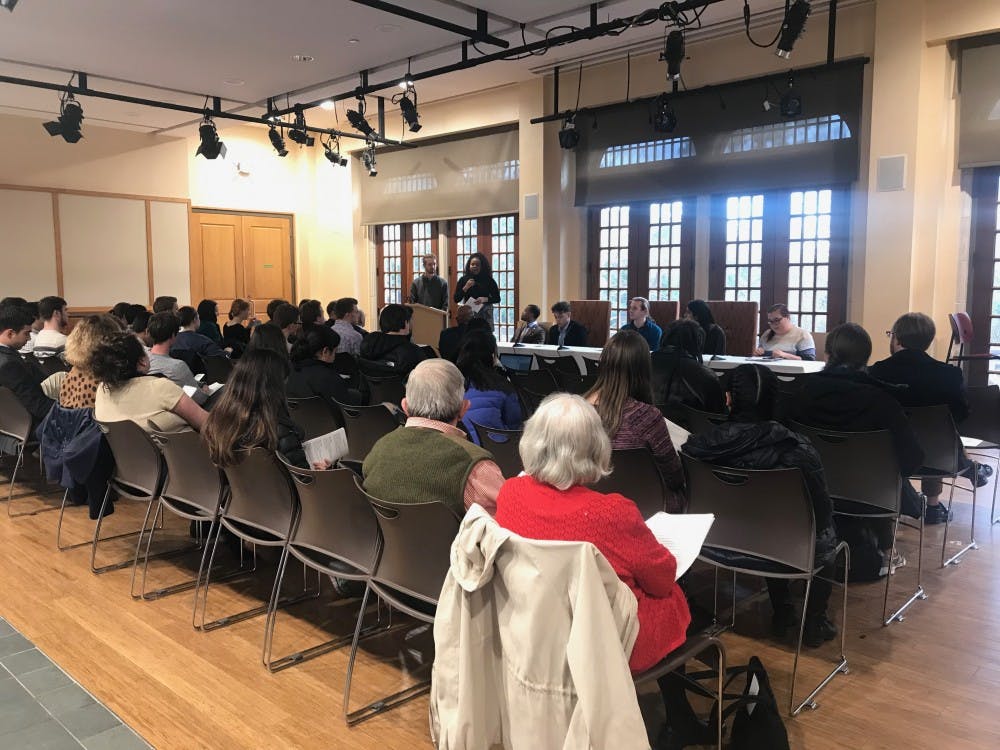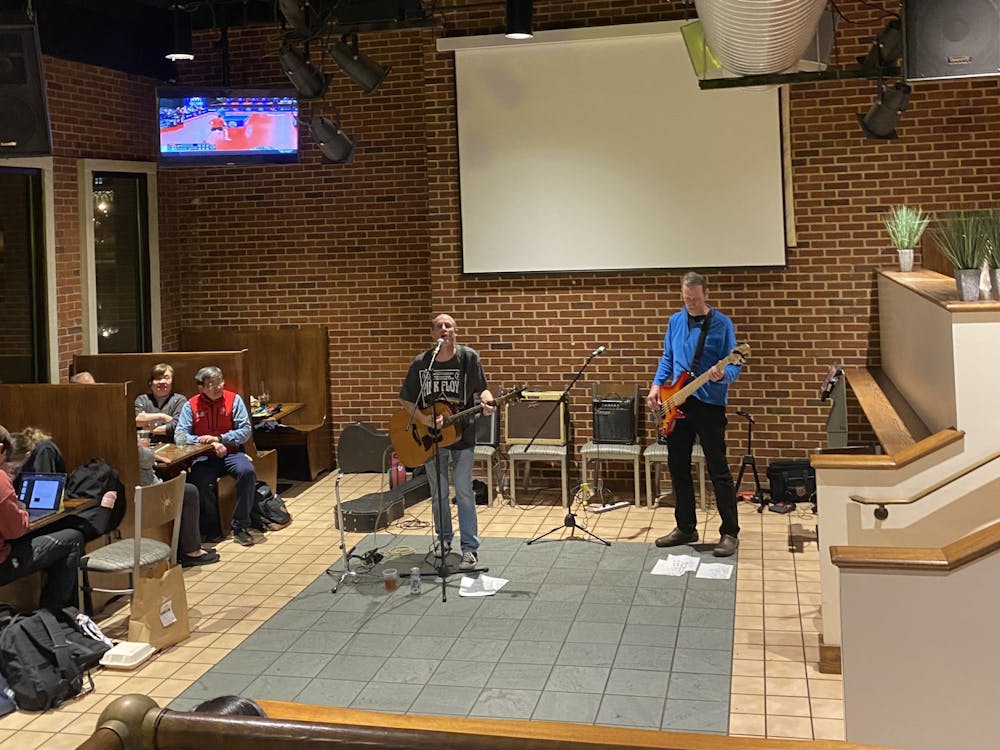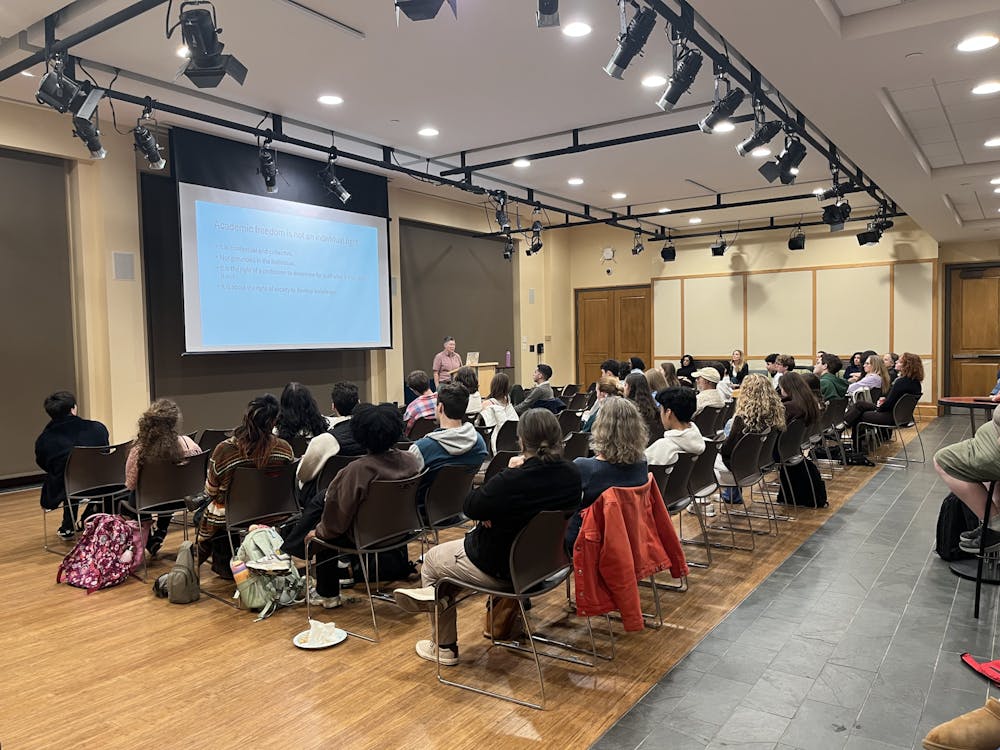Zachary Wood, author of "Uncensored: My Life and Uncomfortable Conversations at the Intersection of Black and White America," joined a panel of students to answer questions about fostering dialogues and freedom of expression on Monday.
The four student panelists, Sam Burns, Meghna Melkote, Jacob W. Roberson and Julian Scott, represented various student organizations that had stake in the issue of freedom of expression on campus, said Robert Ostrom, junior and vice president of the Richmond College Student Government Association Legislative Affairs Committee.
Senior Cherelle Cotton, chair of the Westhampton College Government Association Legislative Affairs Committee, moderated the event and asked the panelists questions submitted from student organizations on campus.
Wood began by discussing how to approach difficult conversations with people who hold different views using three steps: embracing empathy, following your curiosity and meeting people on their terms.
“I’ve learned that if you can take an empathetic approach, when you lead with a question, it opens up an opportunity for you to be able to be understanding of the other person,” Wood said. “When you lead with a question, you can often disarm the other person such that there’s a possibility to better hear and think about what you have to say."
These engagement tools are helpful when approaching topics such as race and freedom of expression, he said. Wood recommended that students start a dialogue with student groups that are already addressing issues of race, inclusion and diversity.
“One thing I have learned as president of Uncomfortable Learning is that there are a lot of people who care about these issues and that want to engage, who have personal experiences and unique journeys that are incredibly important to consider,” Wood said.
Roberson, a senior, agreed, but added that he believed the main issue was that the people who needed to have these conversations were not in attendance at events such as the Sharp Speaker Series. He wants to see the leaders of sororities and fraternities who have a great impact on social life on campus at the events as well, Roberson said.
Senior Emily Churchill, who was in attendance at the event, echoed this sentiment.
“[The event] confirmed the beliefs of the people in the room, those that are typically more willing to attend these kind of events, that are ready to have these discussions,” Churchill said.
President Ronald A. Crutcher, who was sitting in the front row, also believes more students need to be engaged with difficult discussions. Although he was grateful to have the event and to have Wood speak on the panel, Crutcher’s long-term goal is to encourage all students on campus to engage in difficult conversations, he said.
“It’s less about whom I invite to campus and more about how do we ensure that all of our students are comfortable having these difficult conversations with anyone," Crutcher said. "As educators, I feel it is our responsibility particularly to help those students who feel powerless or who feel uncomfortable."
Enjoy what you're reading?
Signup for our newsletter
Cotton asked the panelists when it is appropriate, if ever, to disinvite a speaker from campus.
Wood said there were three criteria that needed to be met for him to consider inviting a speaker to campus: social relevance, intellectual seriousness and the potential for the event to be productive for the student body.
He measured social relevance through seeing editorials or articles in major newspapers such as The Wall Street Journal or The New York Times. For intellectual serious, Wood referred to the idea that some speakers do not fully believe in what they are saying.
“Sometimes there are people who are just trying to provoke," Wood said. "They are just trying to rile people up."
Determining whether an event would meet the third criterion involves thinking about the needs and concerns of the school and community and asking whether making the event productive for the student body is feasible, Wood said.
However, Burns, a sophomore, was concerned that when provocative or potentially offensive speakers come to campus, the burden of emotional support and community safety often falls on student groups whose members are already feeling vulnerable.
“There are imbalances of power based on identity," Burns said. "And to make it an equal playing field to have conversations in, you have to support your most vulnerable members of your community. That’s a responsibility the university should have."
The unique format of the event by having the speaker join student panelists instead of presenting a talk was meant to increase student involvement and engagement with the events instead of students being talked at, Cotton said.
This format was also in pursuance of the Faculty Senate’s goal to have more discussions this semester about free expression on campus that include all stakeholders, Ostrom said, to see how the Senate should proceed with drafting a new freedom of expression policy, if it changed the policy at all.
The panel was the third event this semester in a series focused on freedom of expression. It was sponsored by RCSGA, WCGA, the Office of the President and the Mortar Board.
Frederick M. Lawrence, CEO of Phi Beta Kappa Honor Society, will speak at the final event in the freedom of expression series on April 8.
Contact news writer Nancy Lam at nancy.lam@richmond.edu.
Support independent student media
You can make a tax-deductible donation by clicking the button below, which takes you to our secure PayPal account. The page is set up to receive contributions in whatever amount you designate. We look forward to using the money we raise to further our mission of providing honest and accurate information to students, faculty, staff, alumni and others in the general public.
Donate Now



